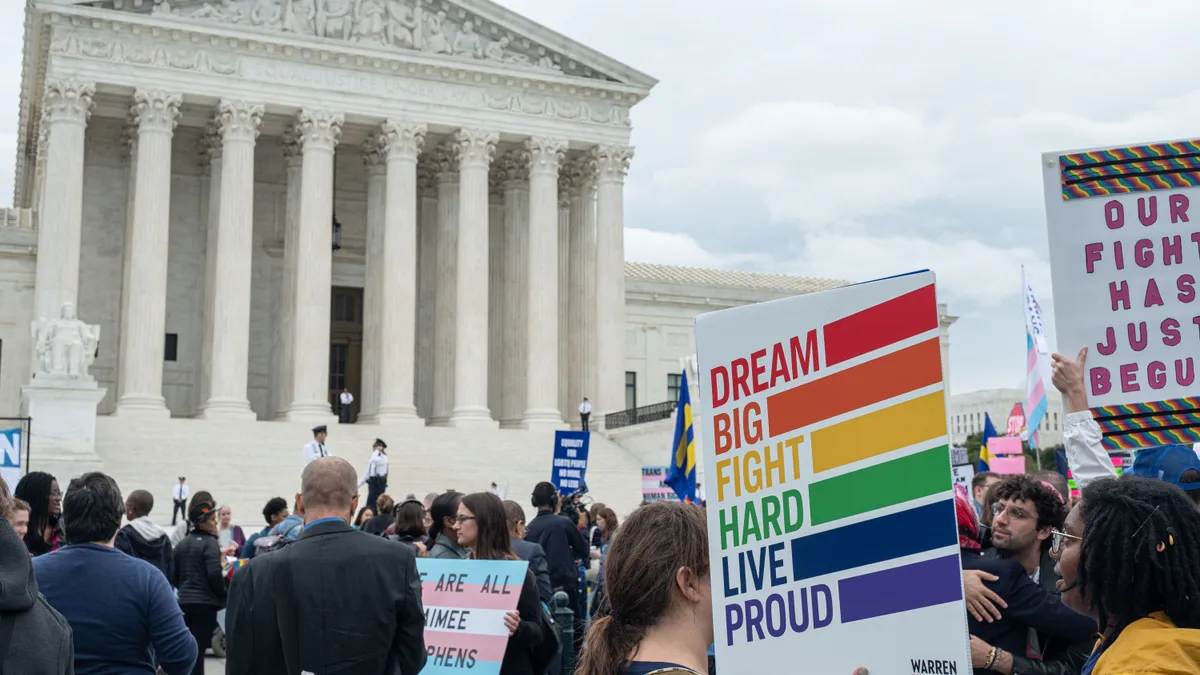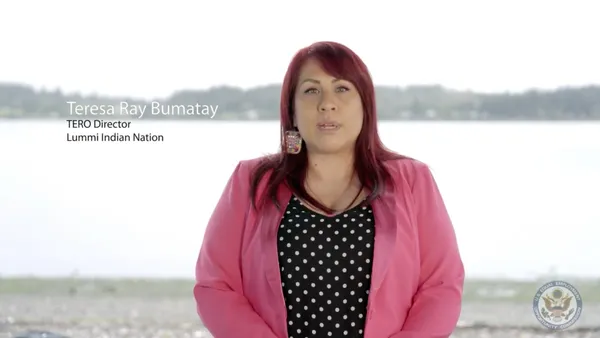Dive Brief:
- Inclusive companies that welcome diverse talent will most likely emerge from the COVID-19 crisis stronger, according to research by McKinsey & Company. But employers appear to be missing the mark in creating a sense of belonging for LGBTQ employees, who struggle with bringing their authentic selves to work, the management consulting firm found.
- “LGBTQ+ voices: Learning from lived experiences,” a McKinsey & Company report released June 25, includes data from a survey of more than 2,000 LGBTQ and non-LGBTQ employees at a variety of organizations worldwide, ranging from entry-level to CEO positions. Coming out at work is especially challenging for women and junior leaders. Just over half (58%) of the LGBTQ women surveyed said that they are out with most coworkers, compared with 80% of LGBTQ men, according to the report. Some women respondents pointed to existing gender discrimination in the workplace as a reason for not being their authentic selves. Just one-third (33%) of LGBTQ survey respondents who are junior employees reported being out with most of their colleagues. And, 1 in 5 of LGBTQ senior leaders surveyed said they are not broadly out at work. The survey also found that when people are open about being LGBTQ, they often have to come out repeatedly — sometimes weekly.
- Regarding work performance, more than a third (40%) of LGBTQ women believed they had to provide extra evidence of their competence. And trans and nonbinary respondents were far more likely to be in entry-level positions than cisgender people. McKinsey researchers interviewed members of The Alliance, a global network of LGBTQ leaders, and included insight from its ongoing Women in the Workplace research, in addition to the survey.
Dive Insight:
The U.S. Supreme Court ruled June 15 that discrimination against workers based on their gender identity or sexual orientation is illegal. In addition to enforcing Title VII, key policies that can promote comfortable environments for LGBTQ employees include domestic-partner benefits, according to McKinsey.
The Human Rights Campaign's (HRC) 2020 Corporate Equality Index (CEI) published in January noted that overall, only about half of all Fortune 500 companies provide domestic partner benefits. The companies that participated in the CEI had a higher percentage (71%).
"Competitive employer-provided benefits' packages are critical to attracting and retaining talent and ensuring LGBTQ-inclusive benefits to employees and their families is an overall low-cost, high-return proposition for businesses," the HRC said in the CEI report. If LGBTQ+ employees are denied equal benefits coverage, the cost to employees and their families is "profound," the organization said.
The McKinsey report noted that in addition to health benefit policies that support the LGBTQ community, inclusive HR systems and documents are vital as well. All genders and personal pronouns used in documentation and all-gender or gender-neutral restrooms and right to privacy are necessary, according to the report. TIAA is a financial services organization that enhanced its policies to offer more support for transgender and gender non-conforming employees. TIAA announced internally June 24 greater protections for privacy, restroom accessibility, the freedom to dress as the gender of an employee's choosing and gender pronoun of choice.
Asking all employees at events to include their pronouns on their name tags is an example of "microsupport" in an organization that can help to reduce microaggressions, according to McKinsey. A 2019 Glassdoor report found that 68% of surveyed LGBTQ+ employees, and half of all employees surveyed, said their companies could make a greater effort to support LGBTQ+ employees and allies. The authors also recommended employers sponsor LGBTQ events such as Pride, and incorporate support networks, like employee resource groups (ERGs).
As teams are working remotely due to the COVID-19 pandemic, Pride, Fidelity's ERG for its LGBTQ community and allies, hosted a month-long virtual celebration in June. "It's critical that our leaders are allies," Cate Ashley, senior user experience designer for enterprise cybersecurity at Fidelity, and co-lead of the Pride ERG, told HR Dive in a recent interview. "We work hard to make allyship actionable, and as easy as possible."
Recruiting diverse candidates, displaying visible symbols of support, making a public and even a financial commitment to supporting LGBTQ employees can create a sense of belonging, according to McKinsey. But employee training regarding inclusion should be a priority as well.
"Employee training — including during onboarding — can decrease the frequency of microaggressions, root out unconscious bias, promote respect toward LGBTQ colleagues, and equip employees to recognize and respond to inappropriate behavior," the authors stated.














